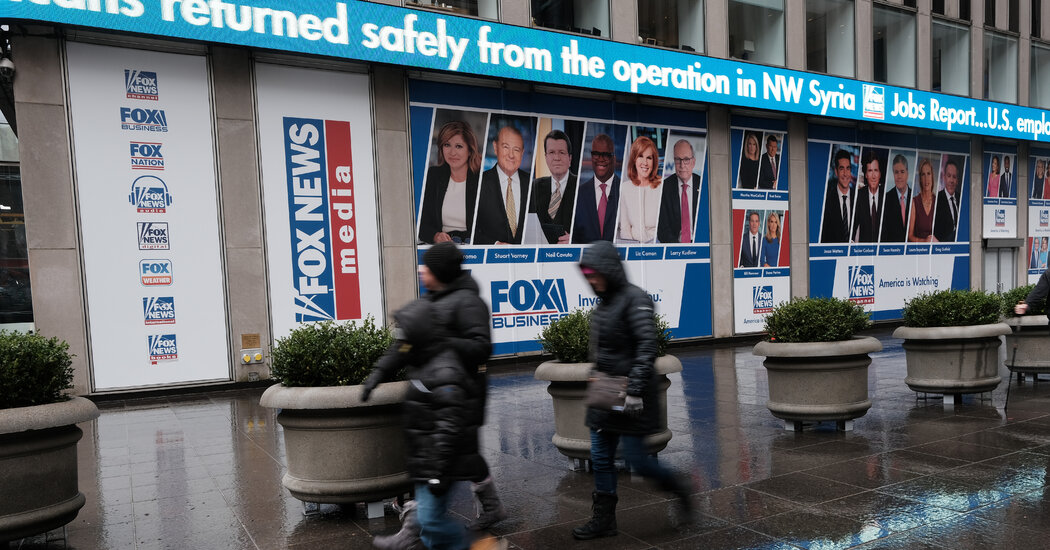As Fox News defends itself in the Dominion case and in a lawsuit by another voting systems company, Smartmatic, the network’s attorneys have argued that the core of the First Amendment is the ability to report on all newsworthy statements — even false ones. – without having to take responsibility for them.
“The public had a right to know, and Fox had a right to cover,” the lawyers wrote. As for inviting guests who made deceptive claims and told wild stories, the network – citing the Sullivan decision – argued that “giving a forum to make even baseless claims is an essential part of the ‘uninhibited, robust and wide open ‘debate on matters of public interest.’”
Last week, a federal judge ruled that the Smartmatic case against Fox could go ahead, writing that at this point “plaintiffs have presented sufficient facts to enable a jury to conclude that Fox News acted with genuine malice.”
The breadth of the First Amendment has led to strange bedfellows in free speech cases. It is generally recognized across the political spectrum that the cost of allowing uninhibited discourse in a free society also means that sometimes things go wrong. When a public interest group in Washington state sued Fox in 2020, claiming it was “deliberately and maliciously involved in a campaign of deception and negligence” about the coronavirus, many First Amendment scholars were critical of the fact that being irresponsible is not the same thing. as acting with real anger. That lawsuit was dismissed.
But many are not on Fox’s side this time. If the network has the upper hand, the argument that the actual maliciousness standard is too onerous and needs to be reconsidered would be strengthened.
“If Fox wins on these grounds, they’ve really pushed the needle too far,” said George Freeman, executive director of the Media Law Resource Center and former attorney for The New York Times. News organizations, he added, have a responsibility when publishing something they suspect may be false to do so neutrally and not endorse it.
Fox claims its anchors have questioned and refuted the most outrageous allegations.
Paul Clement, an attorney who defends Fox in the Smartmatic case, said one of the issues was whether demanding news outlets treat their subjects in a skeptical manner, even when their journalists doubt someone is telling the truth, was consistent. with the First Amendment.

